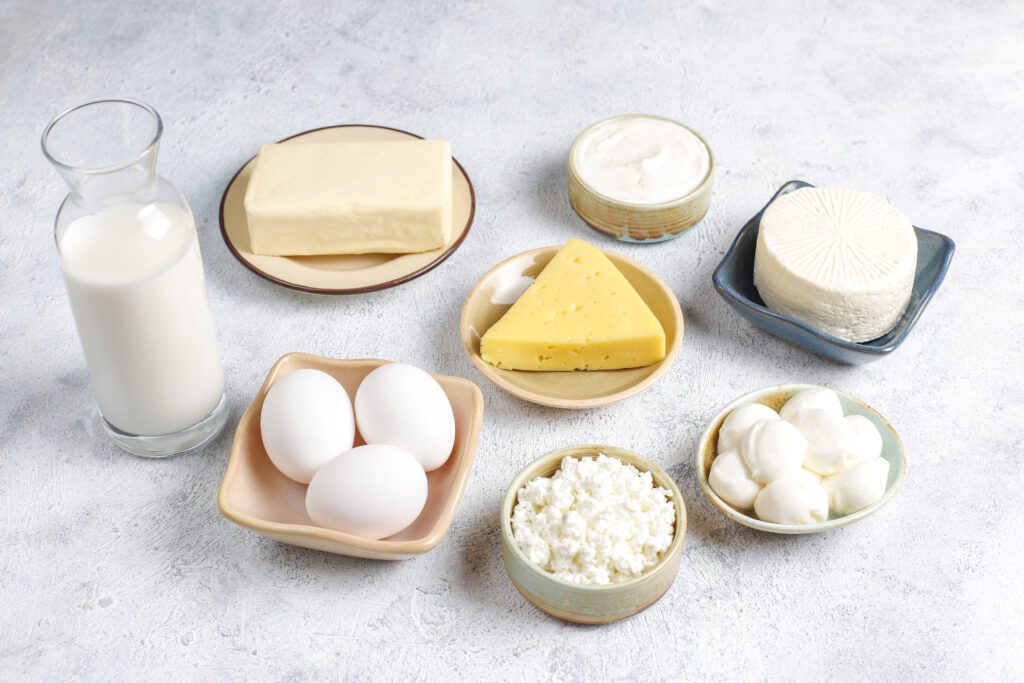Colon cancer, sometimes called colorectal cancer, is a leading global health issue. It targets the large intestine and can lead to severe health issues if found late. Nevertheless, studies indicate proper calcium intake can cut down this cancer risk. Alongside lowering cancer risk, calcium also boosts digestion.
In this blog, we will dive into the link between calcium and colon cancer. It also offers ways to manage this through diet. If boosting your digestive well-being and shrinking your colon cancer risk are your goals, continue reading this piece.
Table of Contents
Understanding Colon Cancer
Colon cancer begins in the lining of the large intestine when abnormal cells grow out of control. Over time these cells form polyps, which can become cancerous.
Common Cause
- Poor diet: A diet low in fiber and high in processed foods increases the risk.
- Genetic factors: Having a family history of colorectal cancer increases the risk.
- Lifestyle: A sedentary lifestyle, obesity, and smoking increase the risk.
Symptoms
- Persistent abdominal discomfort.
- Change in bowel habits.
- Blood in the stool or bleeding from the rectum.
- Sudden weight loss and fatigue.
Colon cancer numbers are climbing, however, catching it early and taking preventive steps can make a major difference. Among these steps, calcium’s role is massive.
The role of calcium in digestive health
Calcium isn’t just a bone-strengthening mineral; it also plays an extremely important role in digestive health, especially in the colon.
How does calcium help?
- Regulating bile acids: Excess bile acids in the digestive tract can damage the lining of the colon, increasing the risk of cancer. Calcium binds with these acids and reduces their effect.
- Regulating cell growth: Calcium ensures proper differentiation of cells and prevents the growth of abnormal cells.
- Boosting gut bacteria: It creates a friendly setting for helpful bacteria, so necessary for digesting food and keeping the colon healthy.
Research findings
One research from the New England Journal of Medicine discovered something interesting. More calcium in your diet could cut down the chances of colorectal adenoma coming back. These adenomas might lead to cancer if not treated. Another research found a similar trend. People who had more calcium in their food experienced a noteworthy reduction in getting colon cancer. The risk dropped by 20%.
Meal Plan for Better Digestion
It is not difficult to follow a calcium-rich diet. It can be easily followed with a simple meal plan.

Calcium-rich foods
- Dairy products: Milk, yogurt, and cheese are good sources of calcium.
- Green leafy vegetables: Spinach, broccoli, and kale.
- Nuts and seeds: Almonds, sesame seeds, and chia seeds.
- Fortified foods: Calcium-enriched cereals and plant-based milks.
- Fish: Sardines and salmon with bones.
Example Meal Plan
- Breakfast: Greek yogurt with chia seeds and a handful of almonds.
- Lunch: Grilled salmon with spinach and quinoa.
- Snack: Smoothie made with banana, kale, and fortified milk.
- Dinner: Scrambled tofu with broccoli and brown rice.
Eating these foods often can boost the link between calcium and colon cancer. Also helps improving gut health.
Case Studies and Research
There’s real evidence showing how calcium affects us. For instance, a study with 10,000 folks showed a lesser chance of colon polyps in those getting at least 1,000 milligrams of calcium daily. Plus, other people found by adjusting to a diet high in calcium, they felt their food digesting better and experienced fewer issues.
Practical tips for better digestion
To maximize calcium’s benefits for your digestive system and focus on the calcium and colon cancer connection, try the following tips:
- Include vitamin D along with calcium: Vitamin D enhances calcium absorption. Eat eggs or fortified orange juice.
- Avoid excess phosphorus: Phosphorus found in soft drinks can interfere with calcium absorption.
- Stay hydrated: Water helps in nutrient transportation and digestion.
- Eat in moderation: Overeating puts pressure on the digestive system.
Common myths about calcium and colon cancer
• Myth: Calcium supplements are always better than food sources.
Fact: Calcium obtained from diet is more useful and safer for the body.
• Myth: Calcium causes kidney stones.
Fact: Calcium obtained from foods does not form stones in balanced amounts.
Conclusion
Calcium is required for maintaining gut health and reducing the risk of calcium and colon cancer. Incorporate foods with a lot of calcium in your meals to improve your health actively. Minor tweaks in what you eat and how you live can be beneficial as time goes by.
FAQs
Can calcium supplements replace dietary calcium?
Supplements can be helpful but cannot replace dietary calcium. Dietary calcium is more effective for the body.
How much calcium should I take daily to prevent colon cancer?
Aim for 1,000-1,200 mg of calcium daily.
Is dairy the only source of calcium?
No, green leafy vegetables, nuts, seeds, and fortified foods are also good sources.
Can too much calcium be harmful?
Excess calcium (more than 2,500 mg/day) can cause health problems. Follow the recommended amounts.
How does exercise help colon health?
Regular exercise improves digestion and reduces cancer risk factors.









